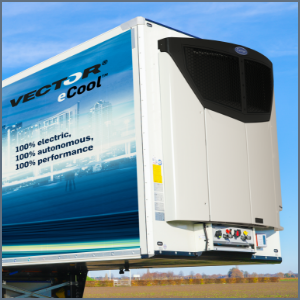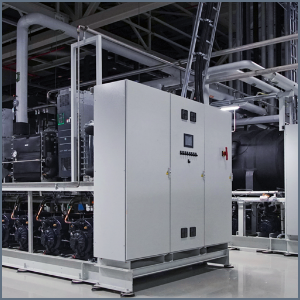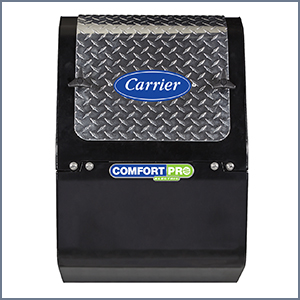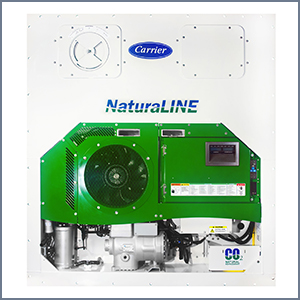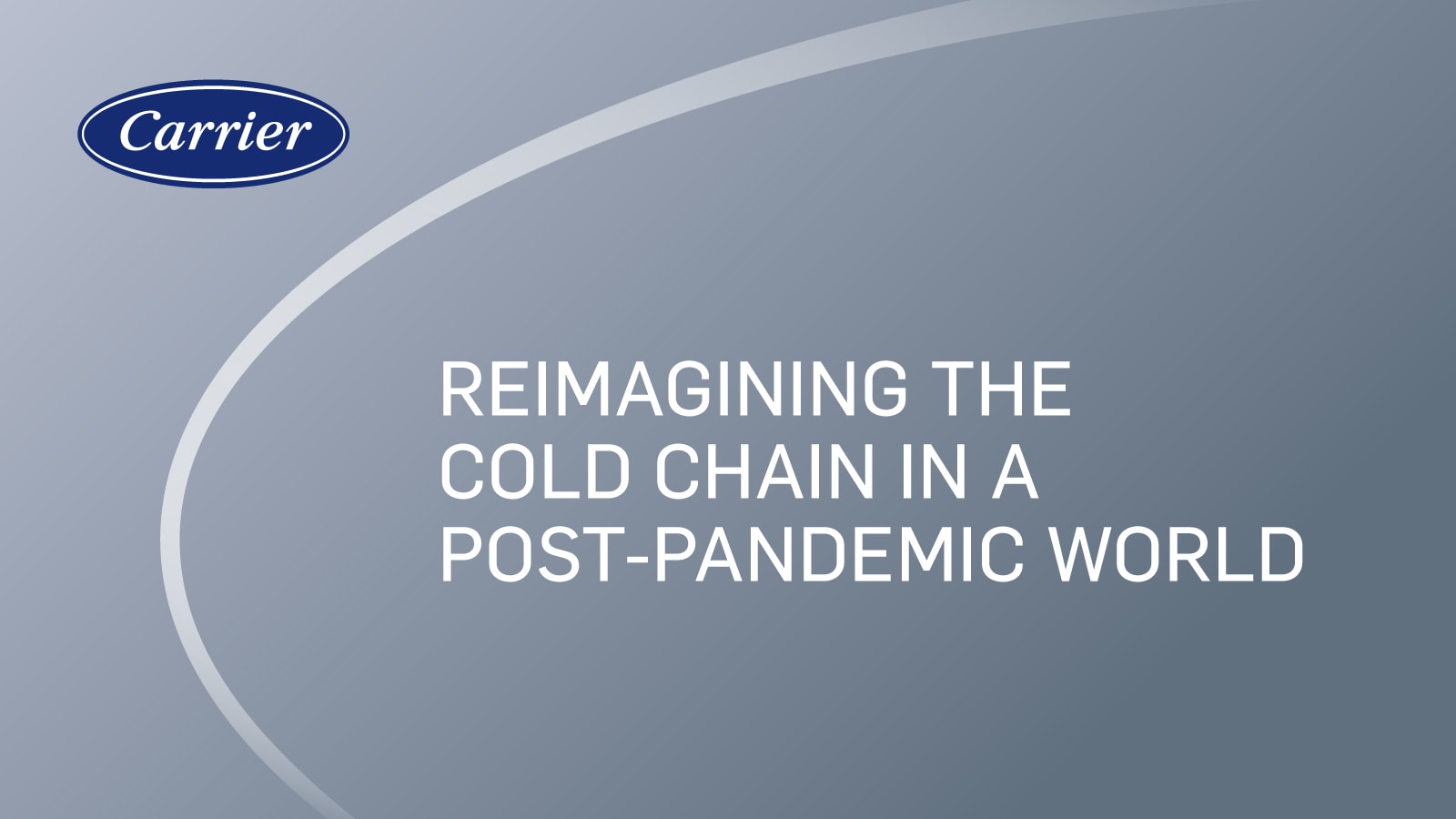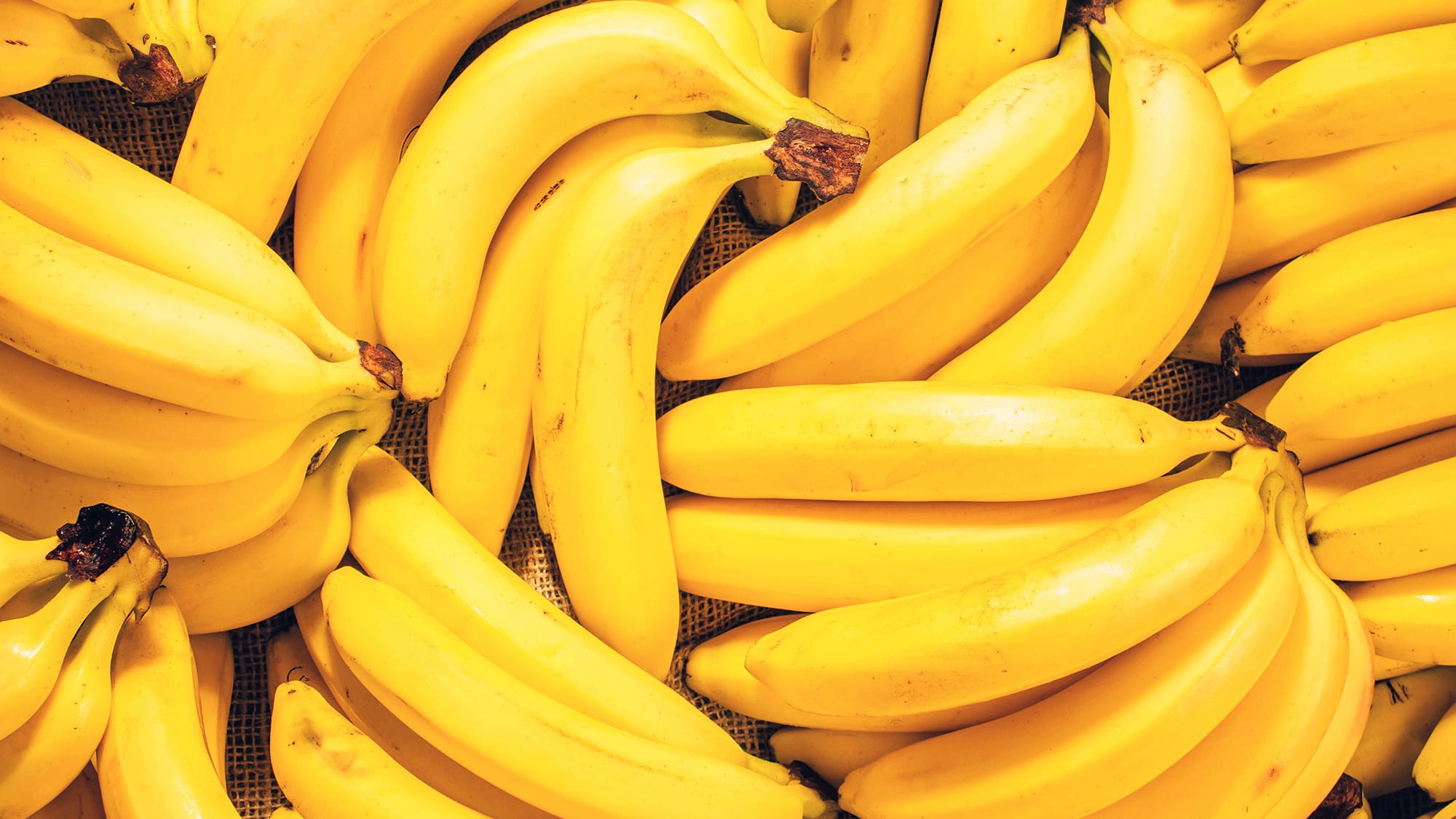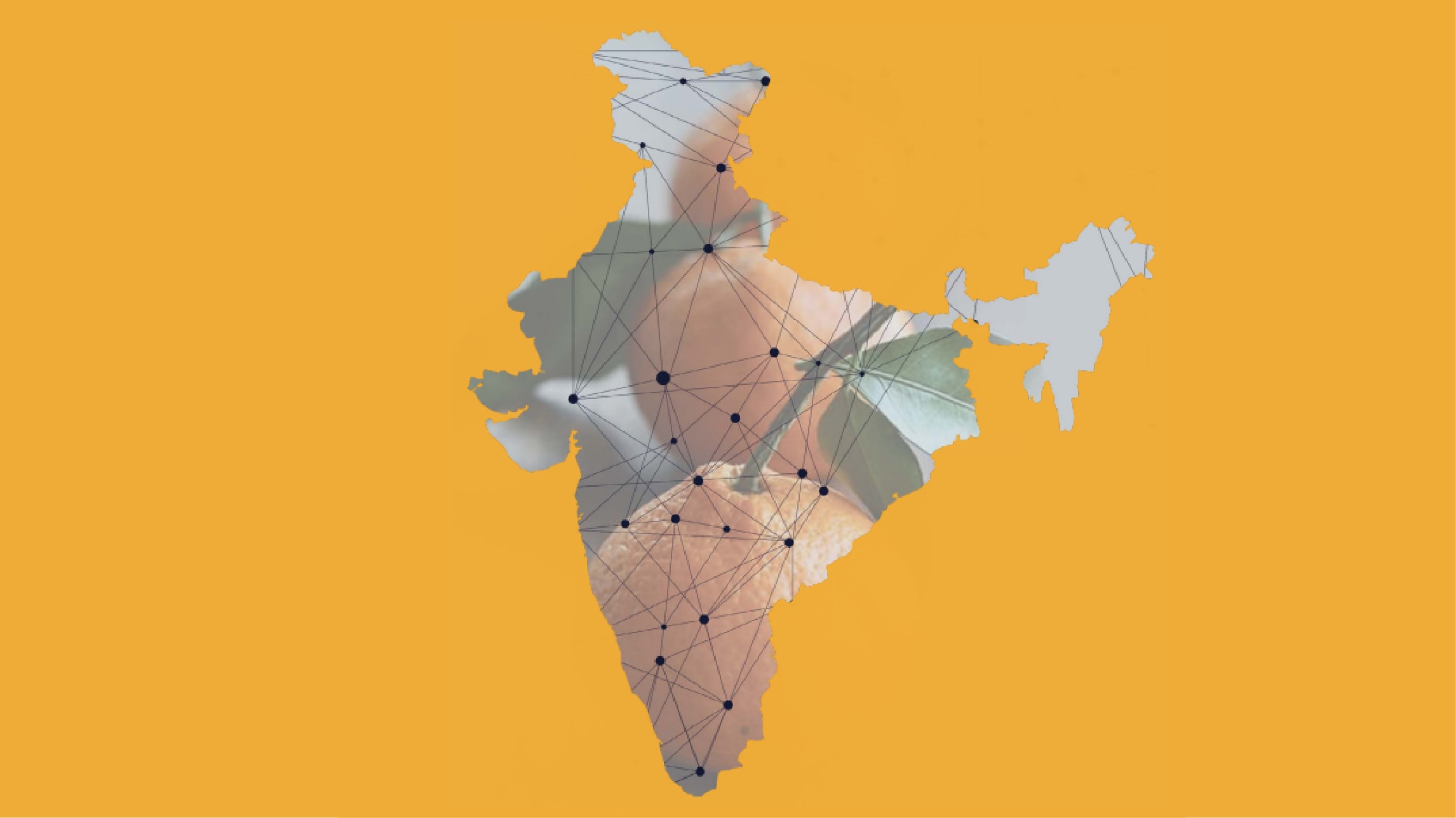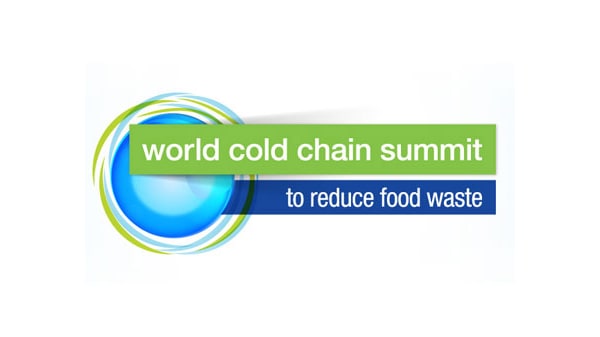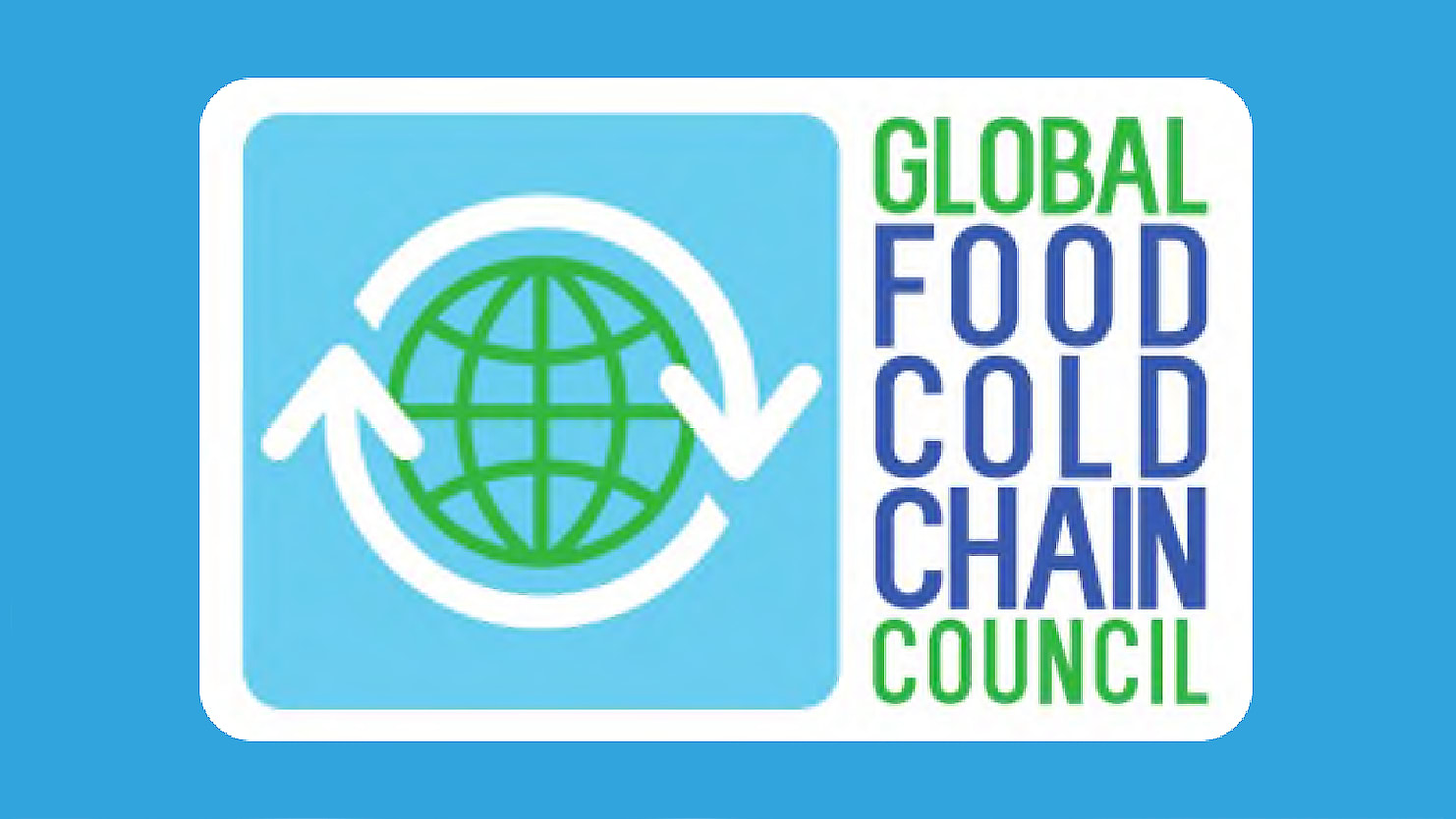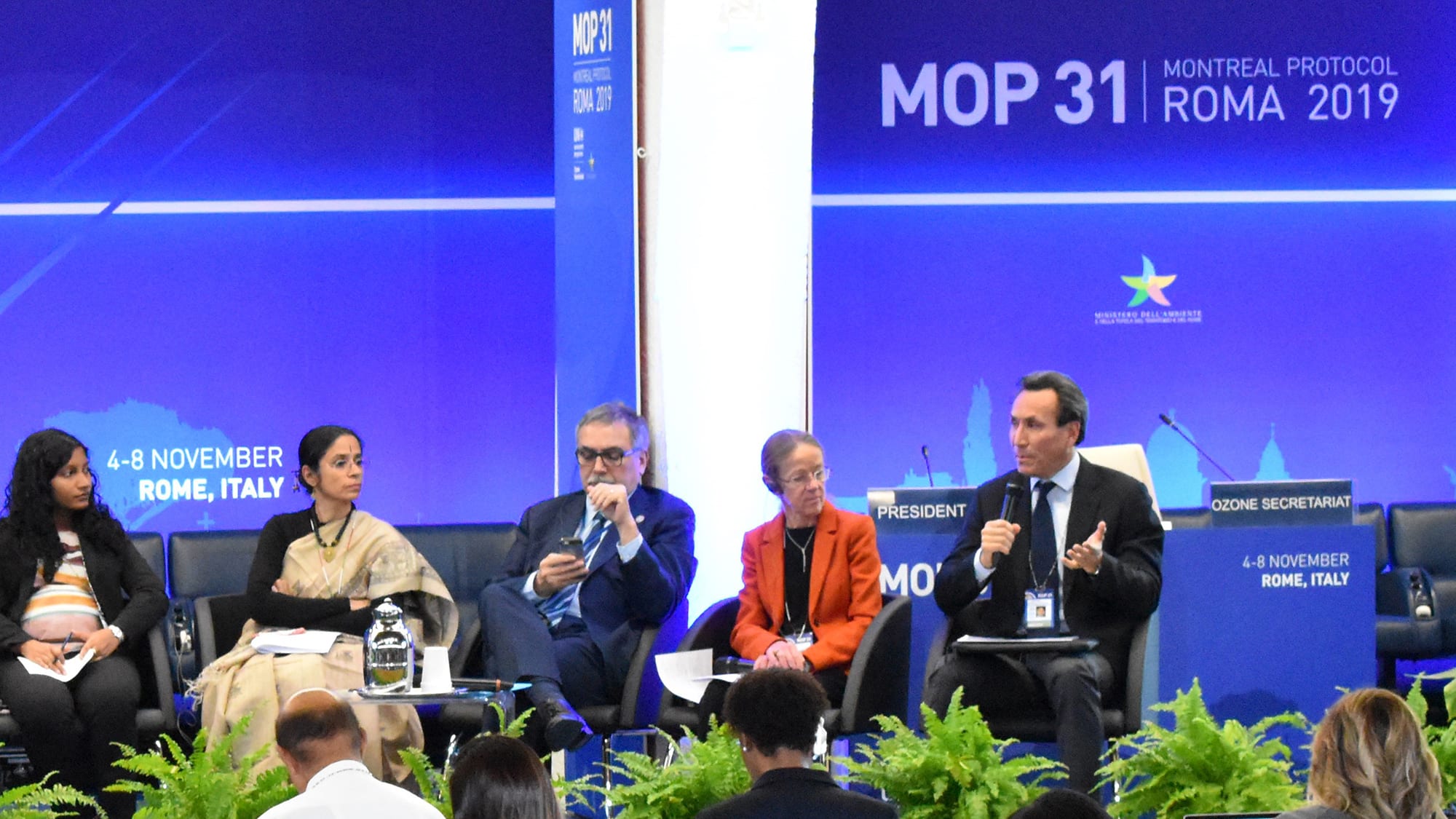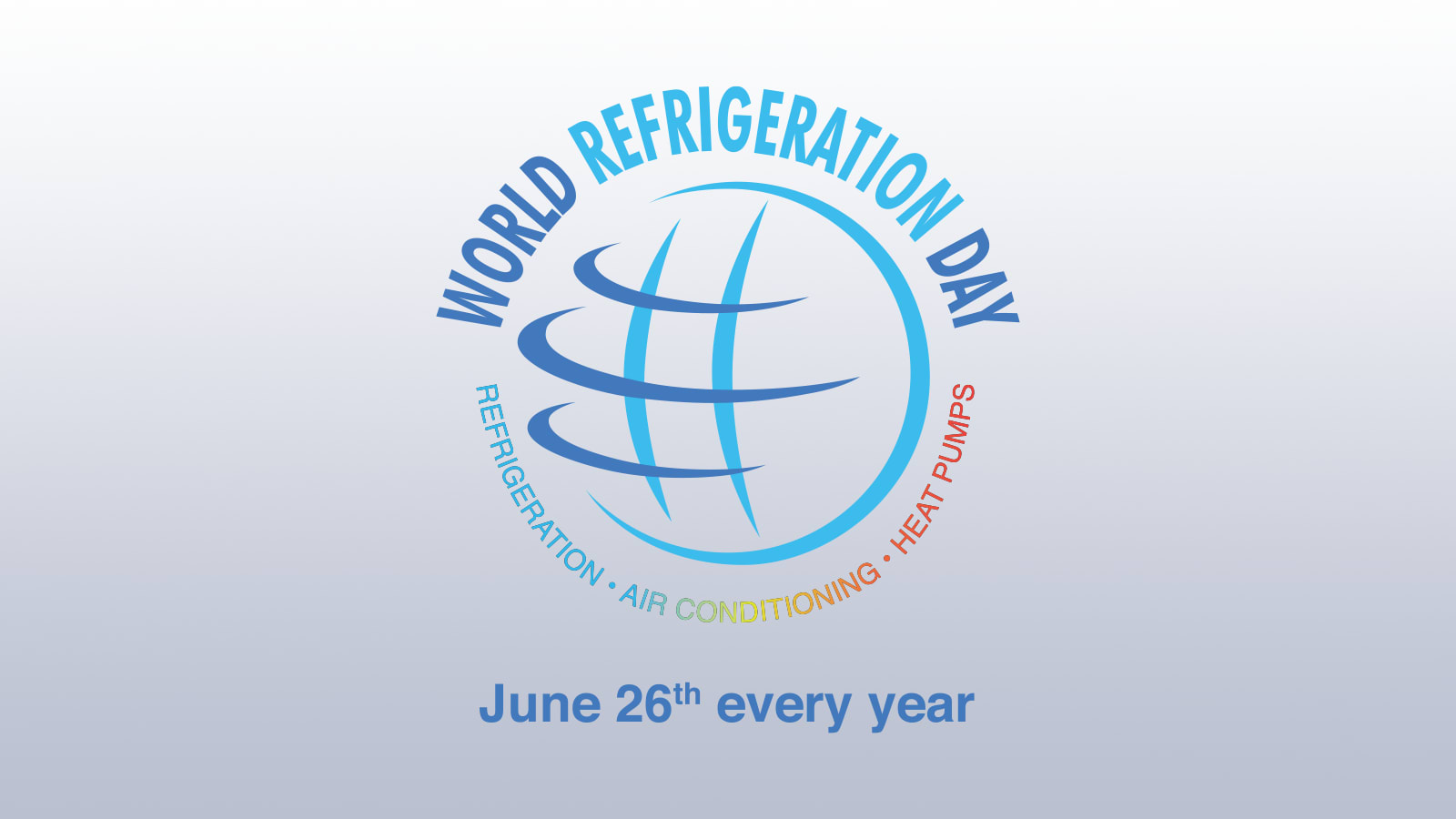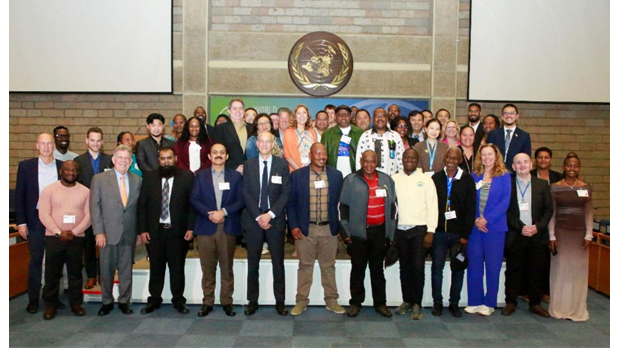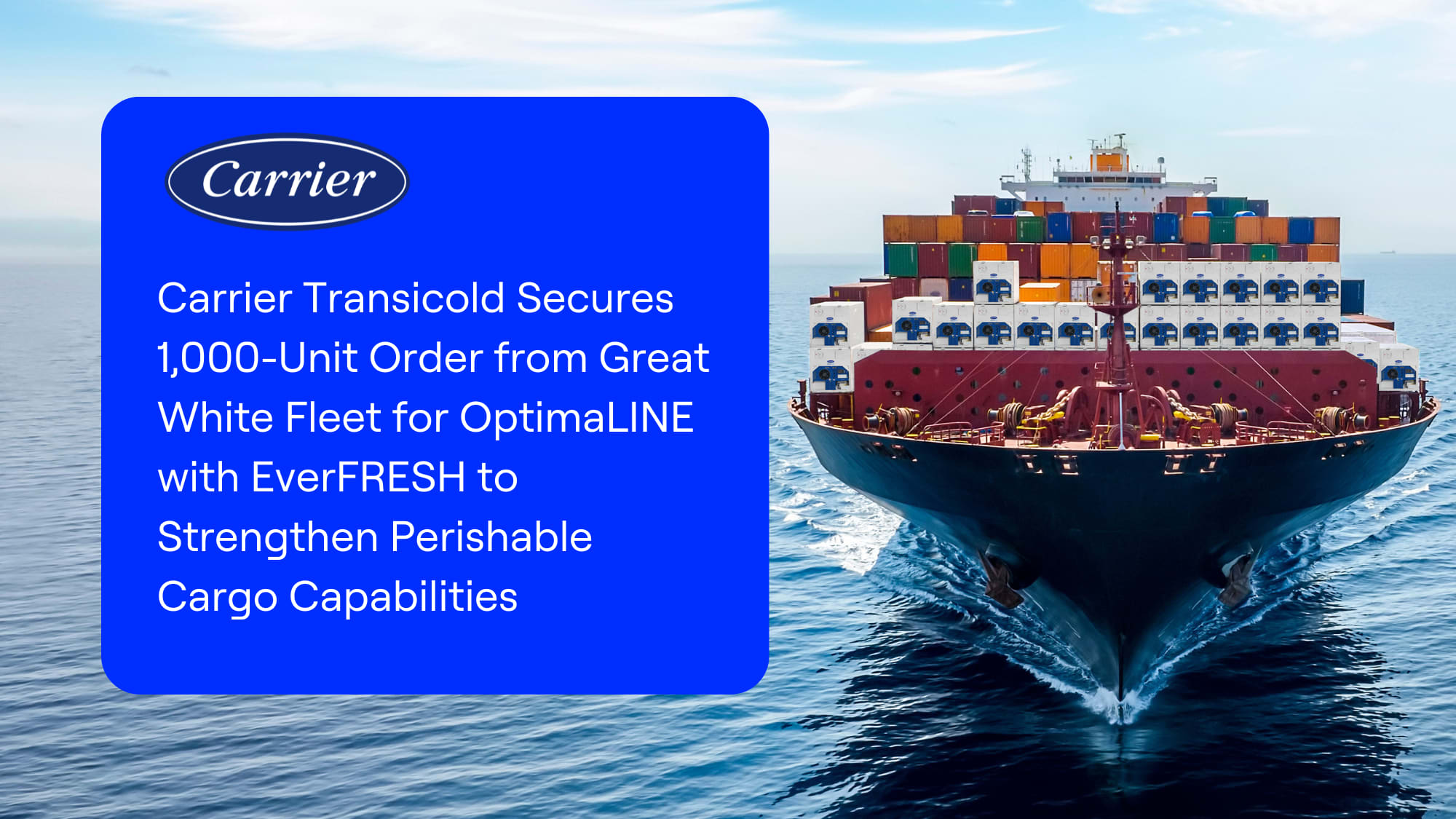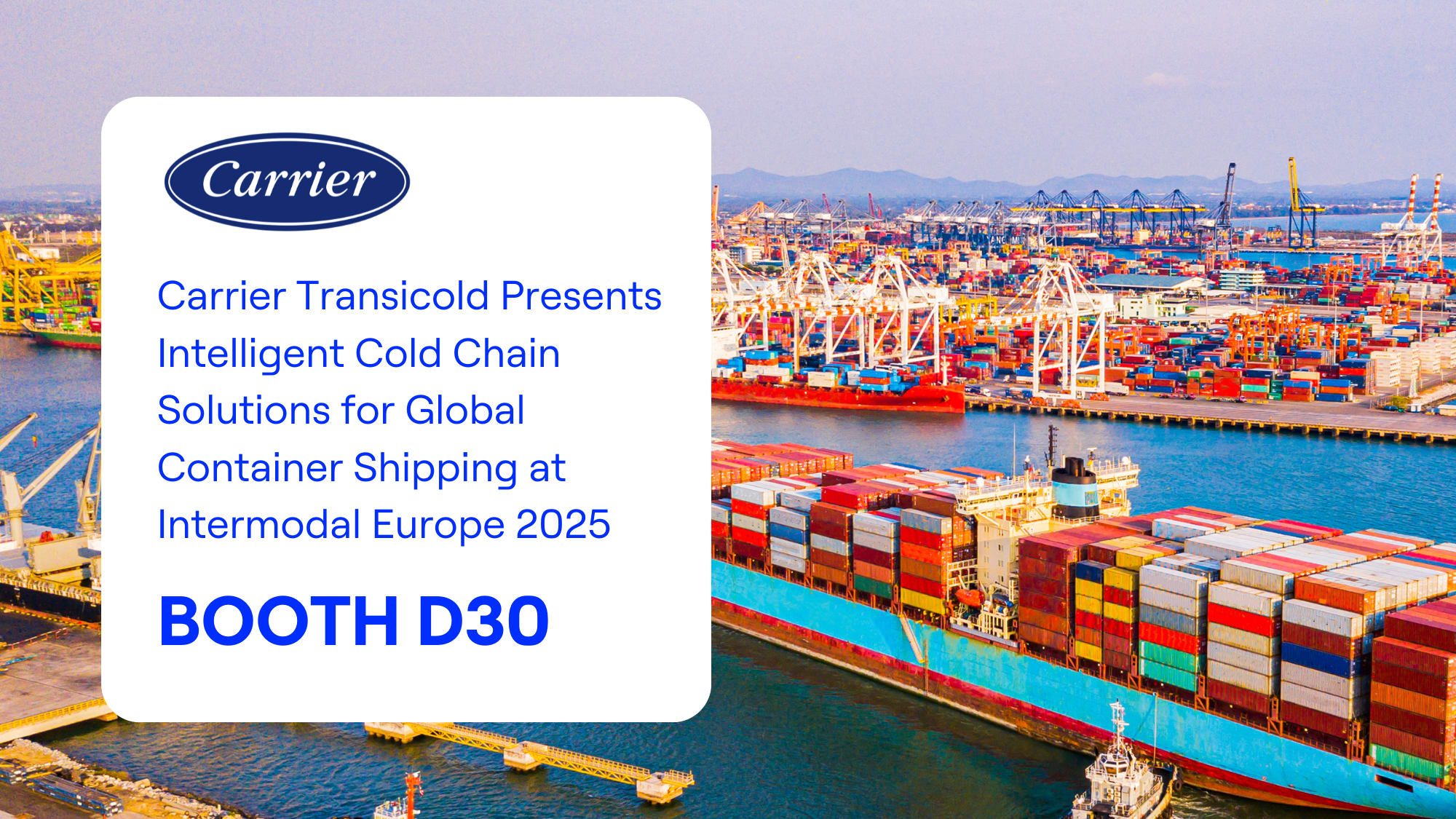While the world produces enough food to feed 10 billion people, one-third or more of it is wasted every year, resulting in more than 800 million people going hungry every day. Food waste also results in an estimated 4.4 gigatons of greenhouse gas emissions. To help overcome this global challenge and feed a growing planet, Carrier is creating a smarter and more connected cold chain.

A Comprehensive Approach to Decarbonization

Design
We bring design and assessment expertise, including transport fleet electrification and fuel savings solutions, design-to-build natural refrigerant mechanical systems, thermal storage and freight-lane mapping.
Enable
We lead the way in sustainable cold chain solutions like natural refrigerant container and commercial systems that reduce food waste, save carbon emissions, and extend the world’s food supply, high-efficiency transport and commercial refrigeration products and low-GWP cold chain solutions.
Deliver
We ensure recurring value through digital solutions like Carrier’s Lynx digital platform, which intelligently connects cold chain systems enabling end-to-end visibility improving sustainable operations, BluEdge connected, condition-based maintenance service and digitally enabled solutions for greenhouse gas and food waste reduction.Sustainable Solutions: Highlights
At Carrier, we design solutions with sustainability at top of mind. Breakthroughs in efficient, electric technologies. Connected ecosystems for smarter, faster decisions. Platforms that reduce delays, costs and cargo loss. They’re all part of a portfolio that is designed – and continuously evolves – to reduce the environmental impact of the modern cold chain.
Developed in collaboration with Amazon Web Services, Lynx is a cloud-based digital offering that provides end-to-end visibility across the cold chain, helping to improve efficiency and reduce loss.
Lynx by Carrier keyboard_arrow_right Opens in a new windowCarrier Transicold has reaffirmed its commitment to reducing emissions, improving sustainability and increasing efficiency across the transport sector with the first fully autonomous, all-electric engineless refrigerated trailer system, the Vector eCool™.
Vector eCool™ keyboard_arrow_right Opens in a new windowPowerCO2OL™ is Carrier Commercial Refrigeration’s most powerful refrigeration rack, combining sustainable CO2 refrigeration that can achieve up to 30% energy savings.
PowerCO2OL™ keyboard_arrow_right Opens in a new windowThe ComfortPro® electric auxiliary power unit (APU) provides drivers emission-free high performance cab climate control.
Carrier Transicold ComfortPro electric APU keyboard_arrow_right Opens in a new windowCarrier Transicold’s NaturaLINE® container refrigeration unit is the first in the world to provide highly efficient refrigeration using CO2 as a refrigerant, reducing emissions by up to 28% compared with previous equipment.
Carrier Transicold NaturaLINE container keyboard_arrow_right Opens in a new windowExpanding the Cold Chain
To solve any challenge, you have to know what you’re up against. Through a commitment to research, we gain a greater understanding of the causes, effects and overall impact of food waste. And most importantly, we’re able to better identify opportunities to improve the cold chain.
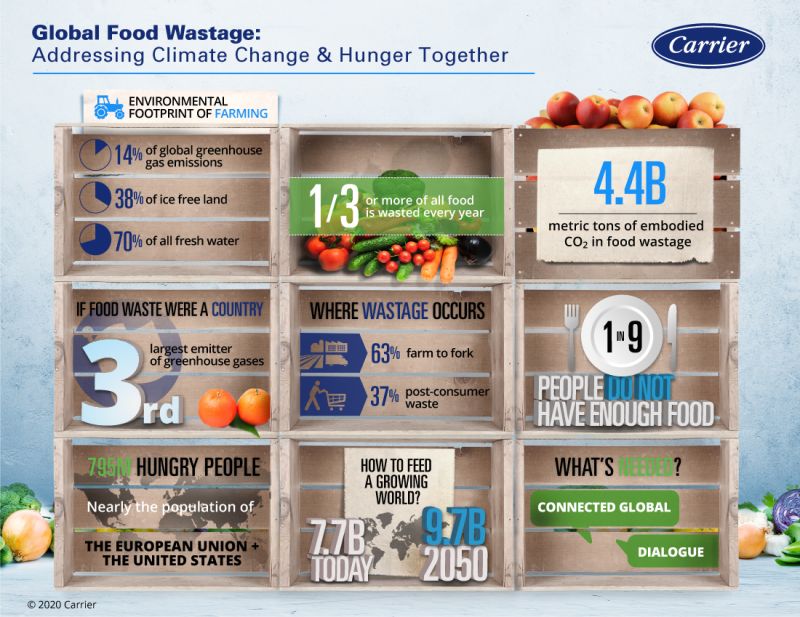
Global Partnerships
It takes more than one company or industry working on its own to succeed in expanding the cold chain. That’s why we bring together brilliant minds from around the globe and across disciplines to discuss, debate and inspire. Together, we’ve made incredible progress – and we’re making food waste part of the global dialogue.
Global Food Wastage Sources:
CBD/UNEP (2010) Global Biodiversity Outlook 3
Clay, J. (2004) World Agriculture and the Environment: A Commodity-by-Commodity Guide to Impacts and Practices Island Press.
European Union Data, http://data.worldbank.org/country/EUU
Food and Agriculture Organization of the United Nations, Food Wastage Footprint Impacts on Natural Resources, 2013.
Food and Agriculture Organization of the United Nations, The State of Food Insecurity in the World, 2014.
Food and Agriculture Organization of the United Nations, The State of Food Insecurity in the World, 2015.
Food Losses and Waste in the Context of Sustainable Food Systems: A Report by The High Level Panel of Experts on Food Security and Nutrition, 2014.
IPCC (2007) Climate Change 2007: Synthesis Report. Contribution of Working Groups I, II and III to the Fourth Assessment Report of the Intergovernmental Panel on Climate Change.
UN Department of Economic and Social Affairs. (2015, July 29). World Population Projected to Reach 9.7 Billion by 2050.
UN FAO, Food Wastage Footprint & Climate Change, 2015, http://www.fao.org/3/a-bb144e.pdf
U.S. and World Population Clock, http://www.census.gov/popclock/

